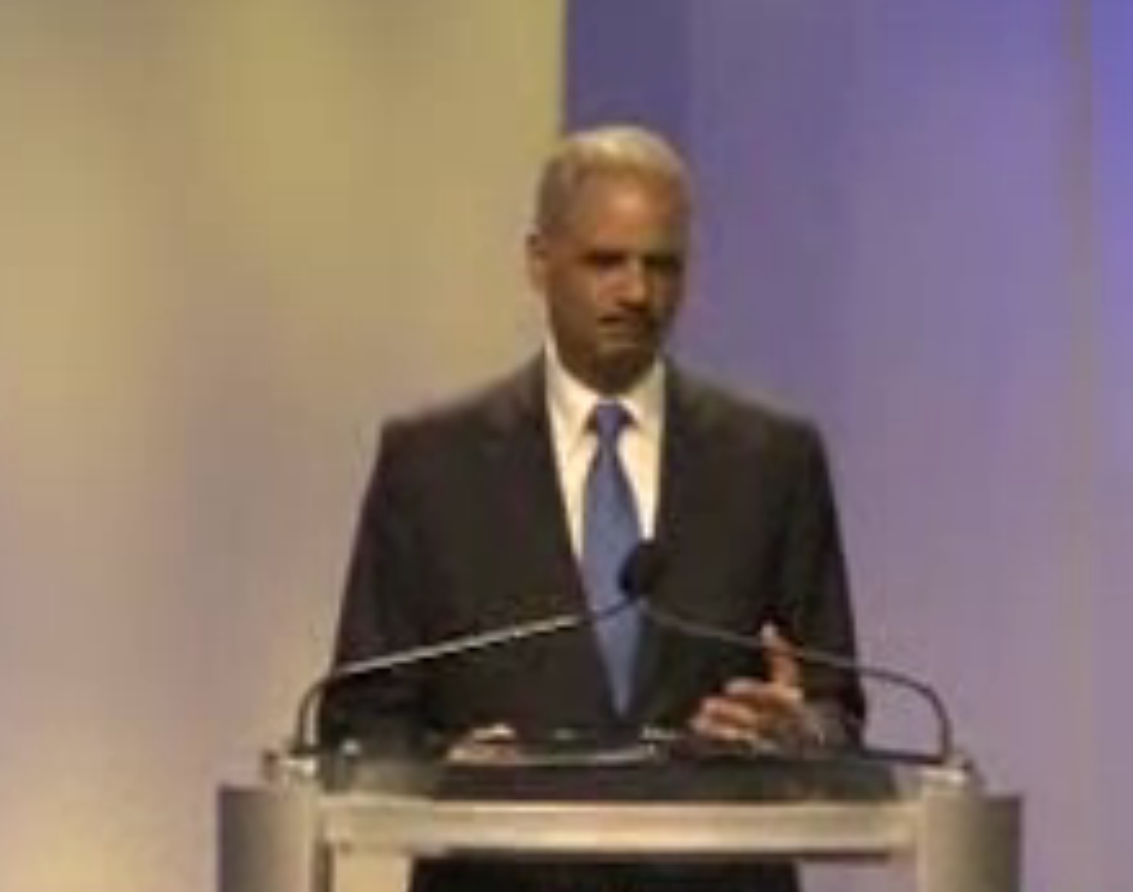Attorney General Eric Holder told the annual conference of the National Association for the Advancement of Colored People (NAACP) in Orlando, Florida Tuesday that the acquittal of George Zimmerman in the shooting death of Trayvon Martin should lead to a national conversation that “honestly, honestly” confronts the issue of race in American society.
Holder entered to an organist’s rendition of “We Shall Not Be Moved,” the civil rights anthem. Reiterating his comment on Monday that Martin’s shooting had been “unnecessary,” Holder also noted President Barack Obama’s comment that “we are a nation of laws,” and that the decision of the jury must be respected.
He confirmed, however, that the Department of Justice would continue investigating Zimmerman for alleged civil rights violations, and he emphasized that he cared about the case. Despite the progress symbolized by the election of President Barack Obama, and by his own appointment, much was left to do on civil rights, he said.
Holder cited the problem of interacting with the police–but added that he hoped it would not be the only conversation the nation had. People “for the most part” had rejected riots in response to Zimmerman’s acquittal, he said, and they “proved wrong” those who had expected them to ignore the rule of law. “Those who conduct themselves in a contrary manner do not honor the memory of Trayvon Martin,” he admonished.
“It’s time to commit ourselves to a respectful, responsible dialogue about justice and equality,” Holder said. He mentioned gun violence and violence against children, as well as attitudes, beliefs and stereotypes that encourage police zeal and private discrimination. He added that he would oppose laws that bolstered the self-defense argument, saying the traditional right of self-defense in common law should be enough.
“It is our collective obligation. We must stand our ground to ensure [applause] that our laws reduce violence, and take a hard look at laws that contribute to more violence than they prevent,” Holder said.
Holder continued by describing his own sources of inspiration, including the struggle of black students to gain access to the University of Alabama–one of whom, the late Vivian Malone, later became his sister-in-law.
He cited President John F. Kennedy’s call to Congress to pass civil rights legislation–neglecting to mention, however, that Kennedy had delayed addressing civil rights to appease Democrats from the Jim Crow South.
Holder noted that the Supreme Court had “chipped away” the portion of the Voting Rights Act that required states and localities to obtain “preclearance” from the Department of Justice before making voting changes. “Let me be clear: this was a deeply flawed and disappointing decision. It dealt a serious setback to the cause of voting rights.” He cited examples in which, he claimed, the involvement of the federal government had prevented voter ID laws from exacerbating racial discrimination, both in effect and in intent.
He urged Congress to consider new legislation to strengthen voting rights protections, and said that he directed his departmtent to shift resources to part of the Voting Rights Act that remained intact.

COMMENTS
Please let us know if you're having issues with commenting.